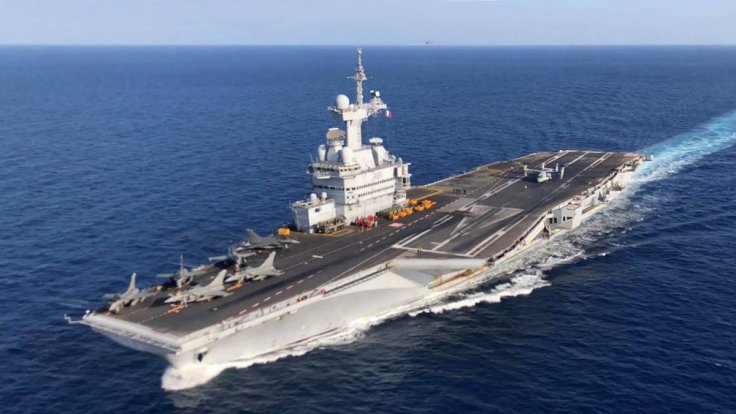In a reversal, the Navy on Friday scrapped its recommendation to reinstate Captain Brett Crozier and instead upheld a decision to fire him from his command of a coronavirus-stricken aircraft carrier where he became a hero to his crew.
The Navy said an in-depth investigation showed that Crozier, despite imploring top brass to do more to safeguard his sailors, had himself failed to do enough to try to halt the spread of the coronavirus. It eventually infected more than 1,200 personnel aboard the Theodore Roosevelt, killing one of them.
The Navy also announced it would suspend the promotion of Crozier's boss at the time, Rear Admiral Stuart Baker, the carrier strike group commander. The decisions were first reported by Reuters.

Expectations Fell Short
Admiral Mike Gilday, chief of naval operations and the Navy's top officer, had previously recommended reinstating Crozier in April after a preliminary investigation. But Gilday said a deeper look showed both Crozier and Baker "fell well short" of expectations.
"Had I known then what I know today, I would have not made that recommendation to reinstate Captain Crozier. Moreover, if Captain Crosier were still in command today, I would be relieving him," Gilday told a Pentagon news conference.
Gilday said Crozier would not be eligible for another command position and would be reassigned, moves that appeared to effectively draw a curtain on Crozier's career.
Some Democratic lawmakers immediately questioned the Navy's judgment.
"We have serious reservations about this decision, which comes as a surprise," Senators Richard Blumenthal and Chris Van Hollen said in a statement.
Congressman Adam Smith, the Democrat who leads the House Armed Services Committee, laid blame also on the Navy's civilian leadership and said his committee had launched its own investigation.
Viral Video
Crozier was hailed as a hero by his crew for risking his job by writing a letter, which leaked, calling on the Navy for greater safeguards.
He was fired by the Navy's top civilian, then-acting Navy Secretary Thomas Modly, but the decision backfired badly. Members of the crew cheered their captain in an emotional sendoff that went viral on social media (here), crediting him for risking his career out of concern for their health.
Embarrassed, Modly then compounded his problems by flying out to the carrier to ridicule Crozier over the leak and question his character in a speech to the Roosevelt's crew, which also leaked to the media. Modly then resigned.
Although Modly fired Crozier over the leak, Gilday said his concern was over Crozier's handling of the outbreak itself.
The investigation found that the virus likely came on board the ship after a March port visit in Vietnam, a country which at the time the U.S. government considered low-risk.
The virus spread widely before the ship reached port in Guam and the Roosevelt's chief medical officer had estimated in a March 31 letter that at least 50 sailors would die. The officer threatened to release the letter to the media "if immediate actions were not taken," according to the investigation. (here)
Letter Addressed Concerns
Crozier responded by saying that wouldn't be necessary, because his letter addressed those concerns.
Gilday faulted Crozier for not putting enough precautions in place for sailors who were not in quarantine, and releasing sailors who were in quarantine too early, which he said "put his crew at a higher risk and may have increased the spread of the virus."
"When obstacles arose, both (Crozier and Baker) failed to tackle the problem head on and to take charge. And in a number of instances, they placed crew comfort in front of crew safety," Gilday said.
The ship has carried on with its deployment with a new captain and new strike group commander.
But it has not been smooth sailing for the Roosevelt since it returned to sea in May. On Thursday, a fighter jet assigned to the Roosevelt crashed in the Philippine Sea, though both aviators on board were safely recovered.








